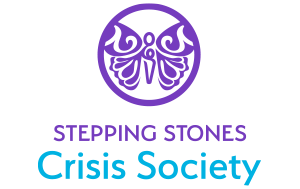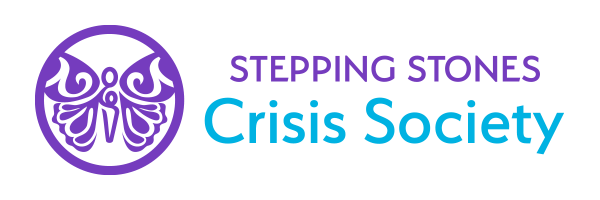
What is Elder Abuse?
According to the government of Alberta, elder abuse is any intentional or reckless act or willful and negligent disregard, occurring within a relationship of family, trust or dependency, directed at someone 65 years of age or older.
Sadly, about 10% of people over the age of 65 in Alberta have suffered some form of elder abuse, being one of the most vulnerable populations. However, the amount of declared cases is much lower than the real expected number, which could be up to 25% due to a lack of knowledge of what elder abuse is. That is why we want to spread knowledge about how the elderly can be abused, and how to prevent it.
If you are suffering domestic abuse as a woman over 65 years of age in Northern Alberta, we can help you. Call our helpline and take your first steps towards a better life.
Why are elderly people vulnerable?
Elderly people are more vulnerable than the average person. First of all, most of them have declined physical attributes, which will make them vulnerable to more physically capable people, often much younger than them. However, other age-related issues such as dementia, mental impairment, declining cognitive abilities, loss of hearing or sight, and physical frailty make them easier targets for abusers.
There are six main ways in which elder abuse manifests itself. Those are:
- Neglect
- Financial exploitation
- Physical abuse
- Emotional abuse
- Sexual abuse
- Healthcare fraud and abuse.

Neglect or abandonment
This is sadly the most common type of elder abuse, being reported in about 50% of all cases. It consists in neglecting the physical and emotional needs of an elderly person either intentionally or unintentionally, sometimes due to ignorance or denial. This can include systematically failing to get them medication or medical attention, abandoning them in a place where they don’t have help, isolating them in an unvisited part of the house, not meeting their nutrition requirements, and sending them away without a proper care structure.
Financial Exploitation
This is also one of the most common forms of elder abuse. It consists of unauthorized, secretive, or manipulative ways of using the senior person’s funds that the abuser uses for their means, putting the elderly person at financial risk, risking their well-being, causing unmanageable debt or even bankruptcy.
Elderly people tend to be potential victims of abusers due to their relative wealth and declining financial abilities, which makes them look for help from other people to handle their finances, thus, attracting people who want to take advantage of them. This kind of abuse can be done by a caregiver or a scam artist and comes in many forms, such as stealing cash, income checks, household items, identity theft, and using personal accounts or credit cards.
A common way in which senior citizens can be financially exploited is through the use of technology. Since they are usually not technologically savvy, scammers will target older people through different means, such as hacking friends or relatives and asking for money through Facebook Messenger, scam emails posing as the CRA asking for information, fake ads asking for their personal information, and many more digital schemes.
Physical abuse
This refers to the use of intentional force against an elderly person that results in physical pain, injury, or impairment. But this kind of abuse goes beyond just physical assaults, any violation against their physical well-being can be considered physical abuse as well, such as the inappropriate use of drugs, restraints, medical devices, confinement, or denying access to medical attention.
Emotional abuse
These can be verbal or nonverbal. Verbal abuse implies speaking to an elderly person in such a way that results in emotional pain or distress, such as intimidation through yelling or threats, humiliation and ridicule, and habitual blaming.
Nonverbal abuse, also called psychological abuse can include ignoring them, isolating them from friends or activities, terrorizing or menacing them.

Sexual abuse
Any non-consensual sexual contact or act against a senior citizen can be considered sexual elder abuse. This includes all physical sex acts without consent, but might also include other acts such as forcing them to undress, forcing them to watch sexual acts or pornography, exposing yourself to them, and many more.
Healthcare fraud and abuse
This is when a medical provider takes advantage of their position and the vulnerability of their elderly patient to perform unethical actions to either benefit themselves or damage their patient. These can include:
- Double-billing for medical services
- Over or under-medicating.
- Prescribing certain drugs or treatments to which they will receive some benefit.
- Ignoring their patient’s symptoms, claims, or requests.
- Applying unnecessary medications.
- Performing tests on the patient without consent.
- Abusive nurses or caregivers who perform any of the previously mentioned forms of abuse.

Elder abuse prevention
If you are an elderly person suffering any of the methods of abuse described in this article, you should do the following:
- Tell someone you trust and ask for help.
- Have your own phone and open your own email.
- Familiarize yourself with services for seniors and attend local health fairs.
- Establish a Power of Attorney and a Living Will.
- Seek alternative options for care beyond your current ones.
- Report any abuse suffered by medical professionals.
- Do not lend your card, bank account access, PIN number, or cash to anyone you don’t fully trust.
- Be careful when co-signing loans or signing over ownership of your home.
- Consider finding aid from a shelter or retirement home.
The Government of Alberta is currently executing a five-year strategy to prevent elder abuse that is being executed from 2022 to 2027. This five-year strategy re-establishes the Government of Alberta’s commitment to work together with community partners and all Albertans to prevent and address elder abuse.
Find Shelter
We can help people suffering from elder abuse too! Even if that means sometimes referring to a different agency that can better assist your needs. At Stepping Stones Crisis Society, you can always find help if you are considering leaving an abusive household in Northern Alberta, particularly in the Cold Lake and Bonnyville areas. You can reach our helpline at 780-594-3353 or contact us at
ou******@St*******************.ca
. We offer an emergency residential shelter for women, with or without their children, and their family pets (dog or cat).
If you find this article useful or want to support our cause, please donate here. Every dollar counts and our clients will greatly appreciate it.


